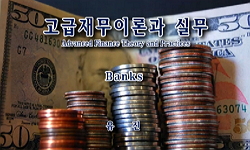The paper examines developments on minimum wage setting mechanisms (MWSM) in Japan and Korea in recent years, focusing on institutions, processes and outcomes of MWSM. Such attributes of the institution are examined as the basic minimum wage setting s...
http://chineseinput.net/에서 pinyin(병음)방식으로 중국어를 변환할 수 있습니다.
변환된 중국어를 복사하여 사용하시면 됩니다.
- 中文 을 입력하시려면 zhongwen을 입력하시고 space를누르시면됩니다.
- 北京 을 입력하시려면 beijing을 입력하시고 space를 누르시면 됩니다.

Comparing Minimum Wage Setting Mechanisms in Japan and Korea: Searching for the Sources of Difference
한글로보기https://www.riss.kr/link?id=A106091969
-
저자
Michio Nitta (Saitama University) ; Jongwon WOO (Saitama University)
- 발행기관
- 학술지명
- 권호사항
-
발행연도
2019
-
작성언어
English
- 주제어
-
KDC
336
-
등재정보
KCI등재
-
자료형태
학술저널
-
수록면
107-132(26쪽)
-
KCI 피인용횟수
0
- DOI식별코드
- 제공처
-
0
상세조회 -
0
다운로드
부가정보
다국어 초록 (Multilingual Abstract)
The paper examines developments on minimum wage setting mechanisms (MWSM) in Japan and Korea in recent years, focusing on institutions, processes and outcomes of MWSM. Such attributes of the institution are examined as the basic minimum wage setting structures, the constitutions and deliberation procedures of the consultative bodies, and the factors considered in deciding annual minimum wage deliberation.
Some similarities are found. Both countries heavily rely on tripartite committees at the national level. Besides, both governments try to influence minimum wage setting procedures by indicating higher minimum wage is desirable. Contrarily, some differences are discovered. One difference is shown in the process of MWSM: it is much tougher in Korea than Japan.
Another difference is observed in the outcome of MWSM: the minimum wages have increased much faster and higher in Korea than in Japan. From a system perspective, the differences may be related to what factors minimum wage setting organizations consider. While income distribution is one of the important factors to be considered in Korea, it is not the case in Japan. It seems that the Korean MWSM is assigned a wider role to reduce income gap among workers, while the Japanese counterpart is allowed to focus more on specifically low wage group of workers.
The authors remind people of policy circles of the importance of wider perspective in examining performance of minimum wage policy. A minimum wage policy may produce expected results under certain circumstances and may not under other conditions. In order to reach a conclusion, one needs to consider wide range of related policies besides economic/social factors.
참고문헌 (Reference)
1 이정민, "최저임금이 고용에 미치는 영향" 한국노동경제학회 39 (39): 1-34, 2016
2 김대일, "최저임금의 저임금 근로자의 신규 채용 억제효과" 한국노동경제학회 35 (35): 29-50, 2012
3 Abe Yukiko, "The Wage Disparity Between Regular Workers and Part-Time Workers and the Role of Regional Minimum Wage 1990 - 2001" 568 : 77-92, 2007
4 Tamai, Kingo, "The Minimum Wage System and Its Contemporary Issues from the Viewpoint of Social Policy: Focusing on the Case of Osaka" 254 : 35-43, 2016
5 Kawaguchi, D., "The Impact of Minimum Wage on Female Employment in Japan" 25 (25): 107-118, 2007
6 Hong Min-Gi, "The Effect of Minimum Wage Increase on Employment in 2018" 43-56, 2018
7 Neumark, David, "Revisiting the Minimum Wage-Employment Debate: Throwing Out the Baby with the Bathwater?" 67 : 608-648, 2014
8 Newmark, David, "Minimum Wages, Labor Market Institutions, and Youth Employment: A Cross-National Analysis" 57 (57): 223-248, 2004
9 Addison, John T., "Minimum Wages, Labor Market Institutions, and Female Employment: A Cross-Country Analysis" 65 (65): 779-809, 2012
10 Ogasawara, Koichi, "Minimum Wage and Public Assistance: From the Viewpoint of Normative Request under the Article, Vol. 9, No. 3 of Minimum Wage Act" 738 : 2-20, 2018
1 이정민, "최저임금이 고용에 미치는 영향" 한국노동경제학회 39 (39): 1-34, 2016
2 김대일, "최저임금의 저임금 근로자의 신규 채용 억제효과" 한국노동경제학회 35 (35): 29-50, 2012
3 Abe Yukiko, "The Wage Disparity Between Regular Workers and Part-Time Workers and the Role of Regional Minimum Wage 1990 - 2001" 568 : 77-92, 2007
4 Tamai, Kingo, "The Minimum Wage System and Its Contemporary Issues from the Viewpoint of Social Policy: Focusing on the Case of Osaka" 254 : 35-43, 2016
5 Kawaguchi, D., "The Impact of Minimum Wage on Female Employment in Japan" 25 (25): 107-118, 2007
6 Hong Min-Gi, "The Effect of Minimum Wage Increase on Employment in 2018" 43-56, 2018
7 Neumark, David, "Revisiting the Minimum Wage-Employment Debate: Throwing Out the Baby with the Bathwater?" 67 : 608-648, 2014
8 Newmark, David, "Minimum Wages, Labor Market Institutions, and Youth Employment: A Cross-National Analysis" 57 (57): 223-248, 2004
9 Addison, John T., "Minimum Wages, Labor Market Institutions, and Female Employment: A Cross-Country Analysis" 65 (65): 779-809, 2012
10 Ogasawara, Koichi, "Minimum Wage and Public Assistance: From the Viewpoint of Normative Request under the Article, Vol. 9, No. 3 of Minimum Wage Act" 738 : 2-20, 2018
11 Iwata, Masami, "Minimum Wage System and Public Assistance System: Consistency of Work-Based Remuneration and Public Assistance Policy" 2 (2): 5-12, 2010
12 Ohtake, Fumio, "Minimum Wage Reform: How to Change the Way of Working in Japan" Nihon-Hyoron-Sya 2013
13 Jung, Jin-Ho, "Measures to Improve the Minimum Wage System" Korea Labor Institute 2003
14 Kanki, Chikako, "Legal Regulation of Minimum Wage and Public Assistance: Comparative Legal study between Japan, the UK, and France" Shinzan-Sya 2011
15 Commons, John R., "Legal Foundations of Capitalism" Macmillan 1924
16 Kaufman, Bruce E., "Institutional Economics and the Minimum Wage: Broadening the Theoretical and Policy Debate" 63 (63): 427-453, 2010
17 Tamada, Keiko, "How is the Minimum Wage Determined?" 593 : 16-28, 2009
18 International Labour Office, "Global Wage Report 2008/09: Minimum Wages and Collective Bargaining. Towards Policy Coherence" ILO 2008
19 Kim, Yoo-Sun, "Effect of Minimum Wage on Employment" KLSI 1-13, 2018
20 Leonard, "Does the UK Minimum Wage Reduce Employment? A Meta-Regression Analysis" 52 (52): 499-520, 2014
21 Allegretto, S., "Do Minimum Wage Really Reduce Teen Employment? Accounting for Heterogeneity and Selectivity in State Panel Data" 50 (50): 205-240, 2011
22 Tachibanaki, Toshiaki, "A Study on Poverty in Japan" University of Tokyo Press 2006
23 Japan Institute for Labour Policy and Training, "(JILPT Document Series, No. 177) Conditions of Wages after the Minimum Wage Law Amendment in 2007"
동일학술지(권/호) 다른 논문
-
기업의 고용유연성 확대는 안전 및 조직성과에 과연 긍정적인가?: 산업안전보건 동향조사 자료 분석을 중심으로
- 한국고용노사관계학회
- 정무헌
- 2019
- KCI등재
-
- 한국고용노사관계학회
- 노성철
- 2019
- KCI등재
-
- 한국고용노사관계학회
- 와카나슈토
- 2019
- KCI등재
-
일본의 비정규직에 대한 「균등․균형대우」의 판단 법리 - 최근 최고재판소 판례를 소재로 하여 -
- 한국고용노사관계학회
- 이정
- 2019
- KCI등재
분석정보
인용정보 인용지수 설명보기
학술지 이력
| 연월일 | 이력구분 | 이력상세 | 등재구분 |
|---|---|---|---|
| 2026 | 평가예정 | 재인증평가 신청대상 (재인증) | |
| 2020-01-01 | 평가 | 등재학술지 유지 (재인증) |  |
| 2017-01-01 | 평가 | 등재학술지 유지 (계속평가) |  |
| 2013-08-01 | 학회명변경 | 한글명 : 한국노사관계학회 -> 한국고용노사관계학회 |  |
| 2013-01-01 | 평가 | 등재학술지 유지 (등재유지) |  |
| 2010-01-01 | 평가 | 등재학술지 유지 (등재유지) |  |
| 2007-01-01 | 평가 | 등재학술지 선정 (등재후보2차) |  |
| 2006-01-01 | 평가 | 등재후보 1차 PASS (등재후보1차) |  |
| 2004-01-01 | 평가 | 등재후보학술지 선정 (신규평가) |  |
학술지 인용정보
| 기준연도 | WOS-KCI 통합IF(2년) | KCIF(2년) | KCIF(3년) |
|---|---|---|---|
| 2016 | 0.64 | 0.64 | 0.79 |
| KCIF(4년) | KCIF(5년) | 중심성지수(3년) | 즉시성지수 |
| 0.77 | 0.77 | 1.247 | 0.39 |




 DBpia
DBpia






